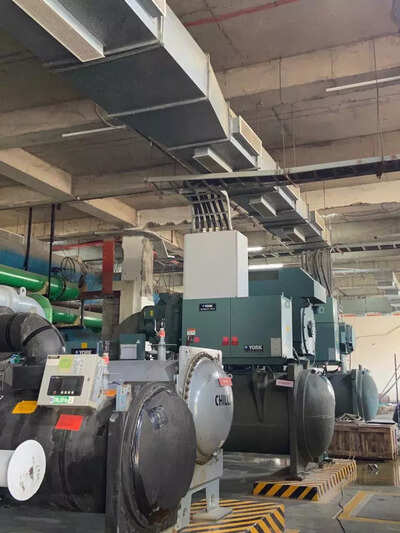Green Credit plan for zero carbon emissions by 2070
Times of Bennett | Updated: Feb 02, 2023 09:19

By Sharvi Sharma
On February 1, 2023, theUnion Minister for Finance and Corporate Affairs Nirmala Sitharaman , while presenting the Union Budget in Parliament, allocated Rs 10,222 crore to the Ministry of New and Renewable Energy . This has been a substantial increase from last year’s budget which was Rs 3,365 crore.
The government is aiming to reform the sector, often described as the weak link in India'spower sector, through competition. The Budget stated measures like National Green Hydrogen Mission which will facilitate the economy’s transition to low-carbon intensity. Rs 35,000 crore is being allocated to reach the government’s target of an annual production of 5MMT by 2030.
Green credit programme has been introduced to encourage sustainable living and aims at net zero carbon emission by 2070. National green hydrogen mission holds Rs 19,700 crore to reduce dependence on fossil fuels inthepower sector. Energy storage system factory under the sustainable development path with Rs 20,700 crore will be used for renewable energy evacuation of 13 GW of renewable energy from Ladakh. Furthermore, 10,000 bio-input resource units are to be set as well.
Last year, theunion Power minister had praised the 2022-23 budget saying it had everything that is required for energy transition. This year, ‘Saptarishi ’, the 7 priorities of the Budget 2023-24 included: Inclusive development, reaching last mile, infrastructure, and investment, unleashing potential, green growth, youth power, financial sector.
The Government had previously stated that investments towards renewables in the last seven years stood at $78.1 billion. As per Govt estimates, the likely installed capacity from non-fossil fuels is expected to be more than 500 GW by 2030 translating to a fall in average emission rate by around 29% by 2029-30, in comparison to 2014-15.
The initiatives are aimed towards sustainable cities for tomorrow and urban planning reforms.
The finance minister said “Green credit programs for encouraging behavioral change will be notified under the environment protection act. This will incentivize environmentally sustainable and responsive action by companies, individuals, and local bodies in mobilizing additional resources for such activity.”
 The
The Union Budget 2023-24 is focussed on clean energy storage and the power transmission sector. In addition, the outlay for the flagship revamped distribution sector scheme (RDSS) to cover more households with prepaid smart meters and reduce aggregate technical and commercial (AT&C) losses is also set to be hiked. So far under RDSS, as many as 17,34,39,869 prepaid smart meters, 49,02,755 distribution transmission (DT) meters and 1,68,085 feeder meters have been sanctioned across 23 states, which comes to about 40 discoms. The total sanctioned cost for this has been Rs 1,15,493.79 crore.
Solar energy sector in India supports the government agenda of sustainable growth while emerging as an integral part of the solution to meet the nation’s energy needs and an essential player for energy security.
On February 1, 2023, the
The government is aiming to reform the sector, often described as the weak link in India's
Green credit programme has been introduced to encourage sustainable living and aims at net zero carbon emission by 2070. National green hydrogen mission holds Rs 19,700 crore to reduce dependence on fossil fuels inthe
Last year, the
The Government had previously stated that investments towards renewables in the last seven years stood at $78.1 billion. As per Govt estimates, the likely installed capacity from non-fossil fuels is expected to be more than 500 GW by 2030 translating to a fall in average emission rate by around 29% by 2029-30, in comparison to 2014-15.
The initiatives are aimed towards sustainable cities for tomorrow and urban planning reforms.
The finance minister said “Green credit programs for encouraging behavioral change will be notified under the environment protection act. This will incentivize environmentally sustainable and responsive action by companies, individuals, and local bodies in mobilizing additional resources for such activity.”

Solar energy sector in India supports the government agenda of sustainable growth while emerging as an integral part of the solution to meet the nation’s energy needs and an essential player for energy security.







